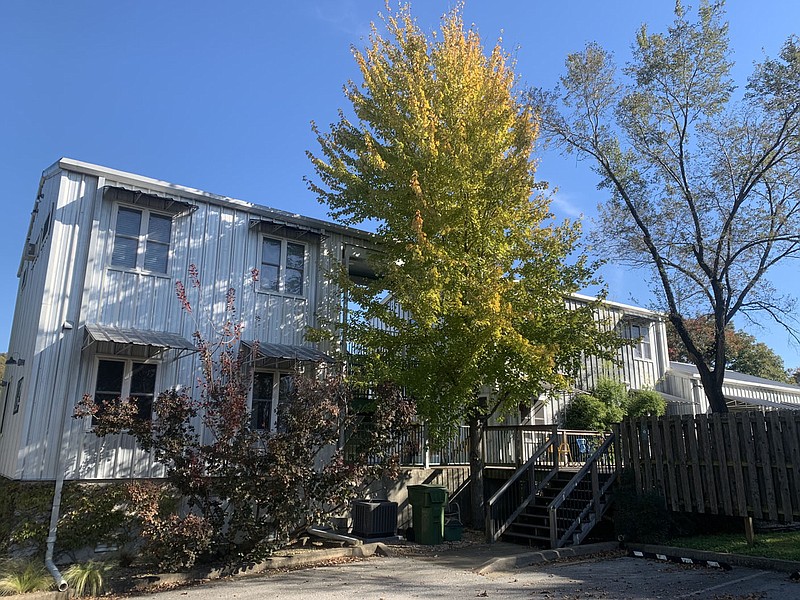FAYETTEVILLE -- A Fayetteville City Council committee on Wednesday agreed on some changes to the city's ordinance regulating short-term rentals while leaving some larger questions for next year.
Council members Mike Wiederkehr, Sloan Scroggin and Holly Hertzberg supported sending the proposed changes to the full council. The changes are tentatively scheduled to appear on the council's Dec. 20 agenda.
Council Member Sonia Harvey and planning commissioners Jimm Garlock and Mary Madden also sat in on the meeting Wednesday.
The only change the council will consider during its Tuesday meeting will be to extend a sunset provision in the ordinance. As of now, the ordinance is set to expire Dec. 20. The proposal is to extend it to the end of next year, with an emergency clause so the extension will take immediate effect.
The issues the committee discussed Wednesday go beyond the sunset provision. Assistant City Attorney Blake Pennington presented the committee a list of changes based on the committee's discussion on the matter Nov. 16.
The council adopted regulations for short-term rentals in April 2021. City code describes them as properties rented out for fewer than 30 days. The city classifies the rentals as Type I or II.
Type I rentals have a full-time occupant on the premises with a room rented out. Type II rentals have guests most of the year without a full-time occupant.
Owners of short-term rentals must get a business license and building safety inspection to operate legally in the city. Type II rental owners have to take the additional step of getting a conditional use permit from the Planning Commission.
One proposed change would require only Type II owners whose properties lie within a residential zone to get a conditional use permit. Those with properties in nonresidential or mixed-use zones would not need the permit.
Fees also would change for short-term rental owners. The cost to get a business license would start at $50 and also cost $50 to renew each year. Right now business licenses start at $35 and cost $15 to renew.
The fee for a conditional use permit also would increase to $200 from $100.
The committee supported adding a list of four conditions the Planning Commission could consider when evaluating a conditional use application for a Type II short-term rental. The commission routinely reviews about 10 such applications at each of its meetings. Its guidance so far on judging the applications has solely been whether a short-term rental is compatible with surrounding properties.
Under the proposal, the commission could consider whether a property has adequate parking space, whether streets are adequate for on-street parking, frequency or concentration of nearby Type II rentals, and any previous zoning or code violations.
The committee discussed other issues such as trash or cars blocking the right of way, but decided other aspects of city code already cover those kinds of violations.
How to regulate the density of rentals was discussed at length with no consensus. The city currently has a cap of 2% of all dwelling units in the city. However, properties in a zoning district that allow hotels do not count toward the cap. Committee members discussed the possibility of doing away with that exemption.
There are 360 Type II rentals registered with the city, 51 of which do not count toward the 2% cap because they lie within a zone that allows hotels, said Britin Bostick, the city's long-range planner. However, the city is in the middle of its renewal period for business licenses, and there are about 15 more in the process.
There are 44,706 dwelling units in the city, according to the American Community Survey of the U.S. Census Bureau. A 2% cap results in a maximum 894 short-term rentals allowed.
The committee discussed ways to limit the number of rentals by a certain area such as neighborhood, census tract or ward but fell short of coming to an agreement. The issue of enforcement also came up, with the idea that fees generated would pay for staff or third-party consultant time to handle properties not in compliance.
According to short-term rental data aggregate website AirDNA, there could be as many as 700 to 800 short-term rentals operating within the city or just outside the city. That means as many as 300 or 400 or so could be operating illegally. Many of them would need to get a permit from the Planning Commission.
